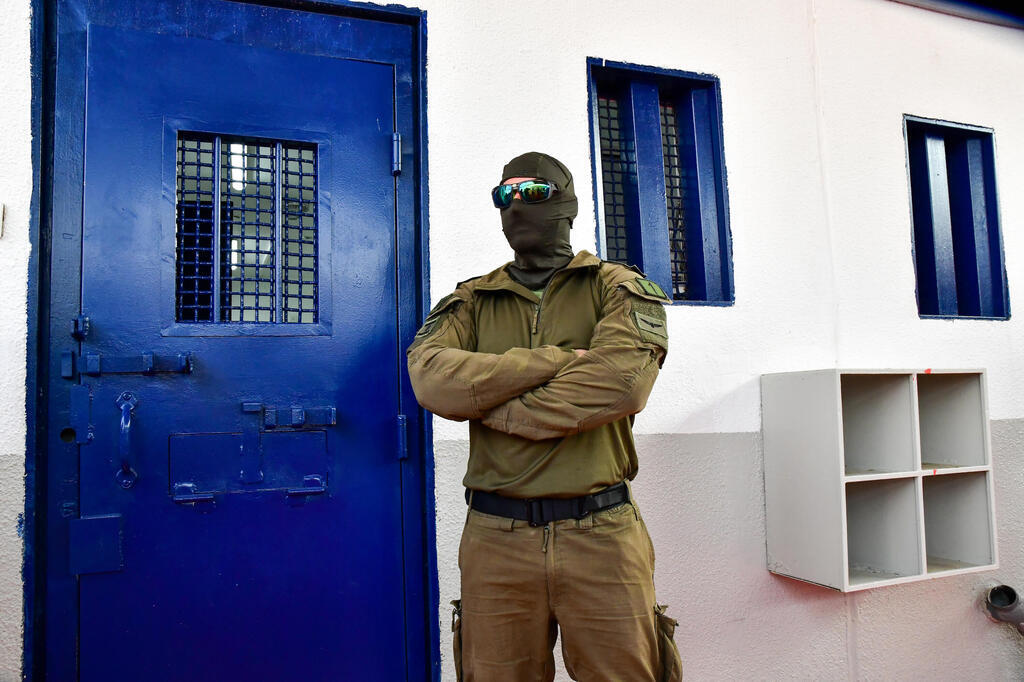Prisoners' organizations stated that the Israeli occupation regime continues to target Palestinian journalists through a systematic policy of arrest and killing since the beginning of the ongoing genocide and comprehensive aggression, and continues to terrorize them using all means.
The prisoners’ institutions (the Commission of Prisoners’ and Ex-Prisoners’ Affairs, the Palestinian Prisoners’ Club, and the Addameer Prisoner Support and Human Rights Association) stated in a statement today, Saturday, on the occasion of World Press Freedom Day, which falls on the third of May of each year, that this stage is the bloodiest in the history of the Palestinian press. According to the Palestinian Journalists’ Syndicate, more than 200 journalists have been killed since the beginning of the genocide, while the prisoners’ institutions recorded about (180) cases of arrest and detention among their ranks since the genocide. The occupation continues to detain (49) of them to this day, and they are only those who were arrested after the genocide, in addition to (6) others whom the occupation continues to detain before the genocide.
She added, "Targeting Palestinian journalists has been, and remains, one of the most prominent policies pursued by the occupation throughout its history. This is in addition to the assassinations it has pursued, which have escalated to an unprecedented level. Since the genocide, it has systematically targeted their families, with many journalists and their families killed during the genocide as part of the revenge operations."
The institutions indicated that the occupation continues to impose the crime of enforced disappearance against journalists (Nidal Al-Wahidi and Haitham Abdul Wahid). Since October 7, 2023, the occupation has refused to disclose their fate, despite the efforts made by many human rights organizations and the ongoing demands to this day. It is noteworthy that the occupation has adopted the crime of enforced disappearance against all detainees from Gaza, and this continued until some legal amendments were made that allowed the disclosure of the fate of detainees in prisons and camps. However, this crime has not stopped to this day, and many detainees from Gaza are still subject to enforced disappearance.
The institutions added that among the detained journalists (19) are under administrative detention, which constitutes the most prominent crime that the occupation has escalated after the genocide, and has affected thousands of our people, in a continuous attempt to impose more control and censorship, deprive them of their right to freedom of opinion and expression, and prevent them from revealing the crimes of the occupation that control all aspects of Palestinian life. The crime of administrative detention has affected many journalists, some of whom were released, and some of whom remain under detention to this day, pointing to the administrative detainee, journalist Nidal Abu Aker from Bethlehem, who spent about 20 years in the occupation prisons, most of which were under administrative detention.
The organizations pointed out how the occupation has transformed social media platforms and journalistic work from a tool for freedom of opinion and expression into a tool for oppression and a pretext for arrest, under the so-called "incitement." The occupation deliberately formulated the terms of what it claims to be "incitement and sympathy" in a vague manner, without clear definitions, in order to be able to use them as a weapon against journalists in particular, and other Palestinians in general, and throw them into prison.
Journalists detained in the occupation's prisons and camps face all the same crimes as prisoners, including systematic torture, severe beatings, starvation, and medical crimes, in addition to the humiliation and abuse they are subjected to on a momentary basis, in addition to the ongoing policies of deprivation and deprivation against them, and their detention in harsh and humiliating detention conditions.
The prisoners' institutions renewed their demands for the urgent release of journalists detained in Israeli occupation prisons, and to reveal the fate of detained Gaza journalists who are facing the crime of enforced disappearance. They called on the United Nations and all international institutions to assume their responsibilities regarding the crimes committed by the occupation against prisoners and detainees, and not to be satisfied with publishing reports and testimonies, announcing them and warning about them, and to stop the systematic state of helplessness in the face of the ongoing genocide and comprehensive aggression.



Share your opinion
Prisoners' Institutions: 180 cases of arrest and detention of journalists have been recorded since the genocide.